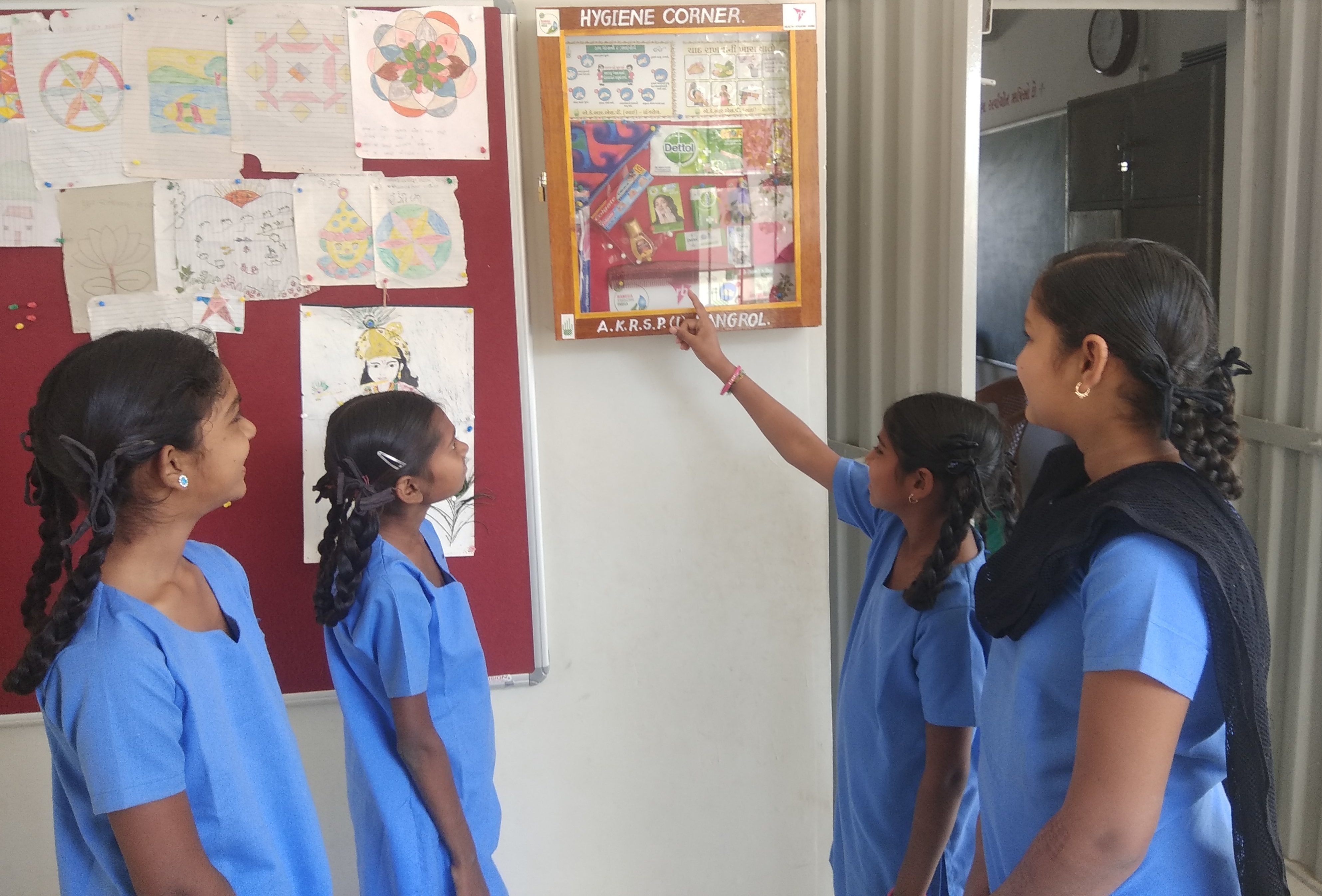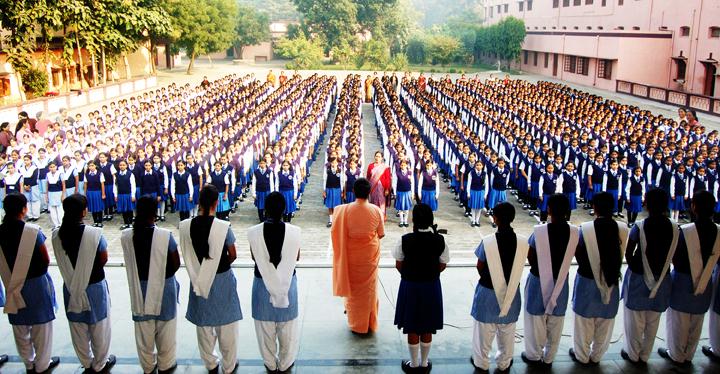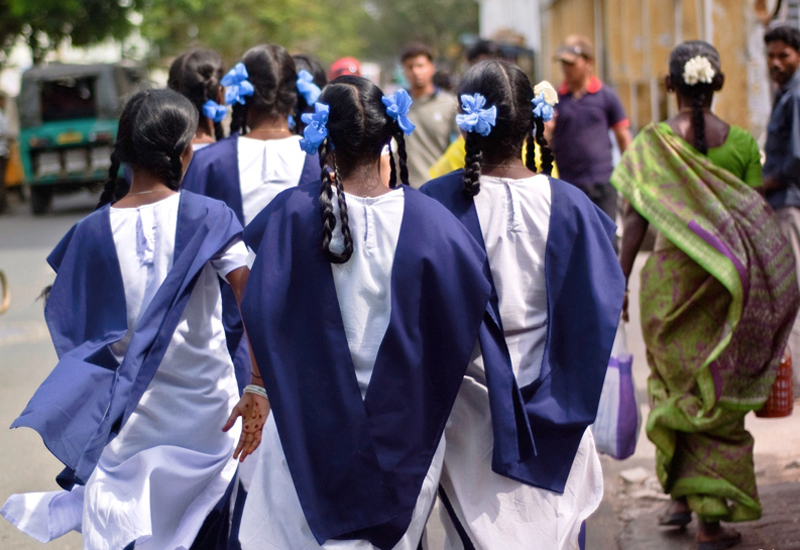GUJARAT/ FROM THE FIELD
There is a widespread feeling that government schools are not well-maintained, particularly so in villages. But many government schools are breaking this image with significant improvements.
Bharat Dogra is a freelance journalist who has been involved with several social movements and initiatives.
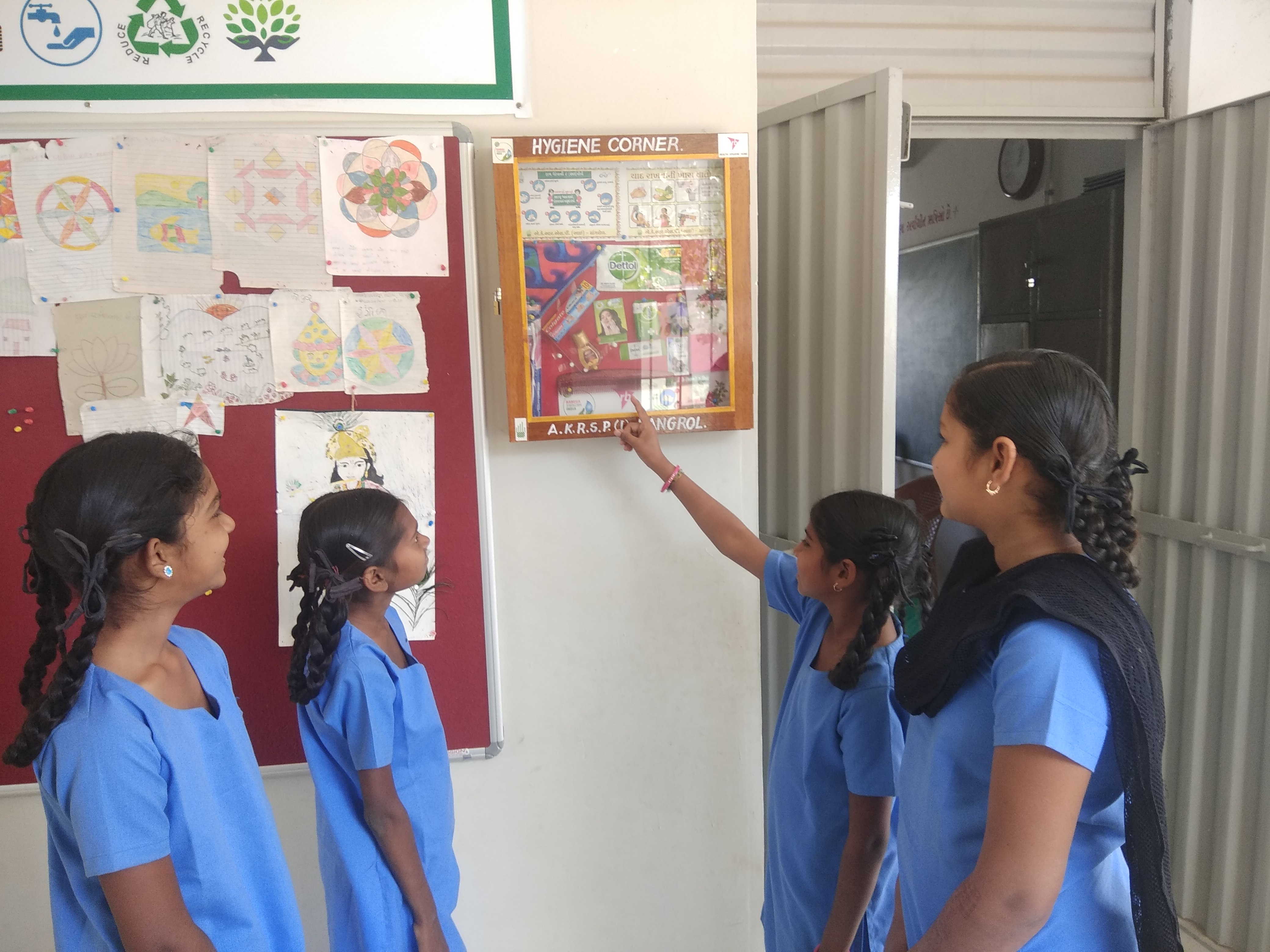
The upper primary (up to class VIII) school in Karandi-Chingaryia village of Mangrol Block (Junagadh district of Gujarat) clearly lives up to this reputation with its bright surroundings and cheerful children. Above all, the teachers and students appear to share a good relationship leading to healthy teaching conditions.
The Aga Khan Rural Support Program (AKRSP) has been supporting a school sanitation program here and it has further contributed to improving the sanitation conditions. A well-built toilet block has been particularly helpful for girl students and lady teachers (the previous toilet lacked a roof). The practice of proper hand washing has been well communicated to children and is also painted in bright colors alongside the hand-washing platform.
AKRSP has helped to introduce a hygiene education program here with special books prepared for various age-groups. The head master here has taken personal responsibility for teaching hygiene to students and the result is visible in the form of a lot of enthusiasm for hygiene among students. Student representatives have been allotted specific sanitation responsibility which they are keen to fulfill. As some of them related now they do not wait for others but like to come forward to clear any litter or dirt.
As a result, the classrooms and the ground are clean despite the absence of a regular sanitation employee in the school.
Another student said it is her duty to water the plants in the village.
We also talked to mothers and sisters of several students in the village. They said with a smile that now even small children have started intervening to improve hygiene in school. As Remila, a mother said, “Now it is more likely that our children will ask us to wash hands and cut nails, rather then we asking them to do so. They are so alert about this.”
Jahnavi, one of the teachers said that the hygiene efforts of the AKRSP have been very useful for this school and the greater hygiene consciousness is also evident as it is leading to better health of the children. In the upper classes education of menstrual hygiene management (MHM) has also been introduced among girl students. They said that earlier they had only limited conversation and were often confused and scared when menstruation started. But now they are well-informed and confident to face the situation.
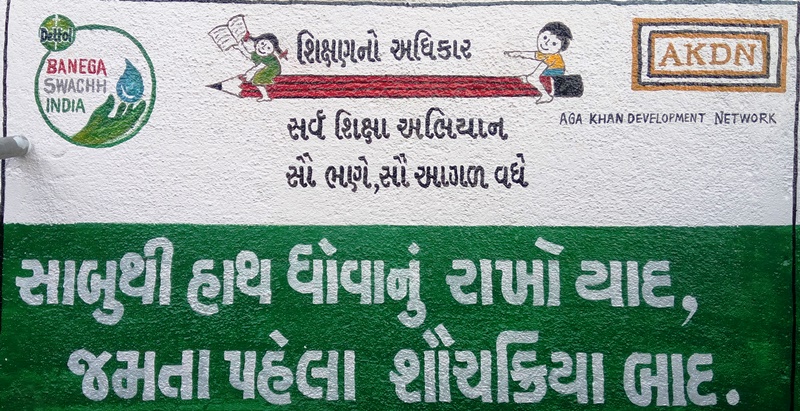
Teachers also support the MHM education effort and its effort to debunk the superstitions and irrational restrictions associated with it. As a result, the old practice of not sending girl students to school at the time of menstruation is now challenged. The fact that there are much better toilets for girls now also helps. As a result attendance of girl students has improved significantly. This educational effort has been very helpful says Pooja, a teacher.
Jahnavi adds,”We are planning a school picnic for which permission of parents has to be taken. So when in a few families it appeared that menstruation is a reason for not sending girl students to picnic, we tried to reason with parents that this is no reason to deprive a girl of a long-cherished happy experience with her classmates.”
This school has also established a hygiene corner where various products and messages needed for maintaining hygiene are displayed. Hygiene messages are also painted brightly at some places in the school.
Hygiene related games make it fun to learn and messages are better remembered. For example hygiene game can be patterned on snake and ladder games—a good hygiene practice leading to ladder and a bad habit treated as snake.
While there is much to cheer about, there are still some problems which need to be resolved.
As there is no provision for a regular sanitation employee, so there are difficulties in ensuring a clean school all the time. The need for a regular sanitation employee is widely felt. The kitchen for cooking Mid- Day Meals is too congested and the place where students eat their meals needs better shade and cover. It is entirely uncovered at present. The mid-day meal cooks are paid very poorly.
Significant improvements are also being seen in several other schools. The AKRSP program is able to reach out to about 100 schools in this region. The school education program in particular has made good progress. Initially, there were some apprehensions that this may be considered an additional burden by teachers, but now there is willing acceptance of this program by teachers.
This helps to create a strong base for hygiene and good sanitation practices among children, while some of them also take the message of better hygiene to their families and neighborhoods.
By giving hygiene education adequate importance and providing interesting educational aids and special books for this purpose, a strong base for education and hygiene is prepared which motivates students to take up the role of not only practitioners but also motivators of hygiene in school as well as within the village community.

